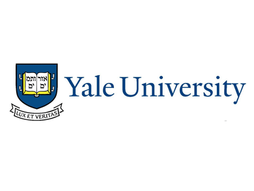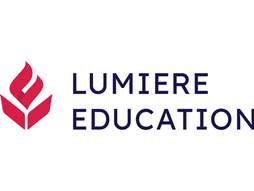10 Free Online Physics Courses for High School Students
Are you a high school student with a passion for physics? Consider online courses!
Online courses offer a solid opportunity to deepen your understanding, explore advanced topics, and showcase your dedication to the subject. By participating in these courses, you can gain valuable insights that enhance both your academic and career prospects. Colleges and employers look favorably on candidates who demonstrate a genuine interest in their field, and completing rigorous online physics courses is an excellent way to make your profile stand out.
However, many online courses come with high costs, which can be a barrier for many students. To help you overcome these challenges, we have curated a list of 10 free online physics courses specifically designed for high school students. These courses are either free or offer 100% need-based financial aid, making them accessible to everyone.
MIT OpenCourseWare (OCW) by the Massachusetts Institute of Technology, offers a wide array of free, high-quality educational resources, including the course titled "Thermodynamics and Climate Change."
This course delves into the fundamental principles of thermodynamics and their direct application to the critical issue of climate change. By examining how energy and heat transfer impact global warming, the course offers crucial insights into one of the most pressing issues of our time.
The course includes comprehensive materials such as lecture notes, assignments, and exams, designed to cater to both beginners and those with a more advanced understanding of physics. The content is self-paced, allowing students to engage with the material at their speed, making it an ideal resource for high school students looking to deepen their knowledge of physics and climate science.
Course Dates: Self-paced.
Cost: Free
Eligibility: High School Students who are proficient in single-variable Calculus and basic programming.
Application Deadline: Rolling basis
This course provides a fascinating exploration of how we study the universe using light—the primary source of information about celestial objects. You'll gain an overview of the physical phenomena in astronomical objects, from planets and stars to cosmic filaments and galaxy clusters, emphasizing the connections between theoretical predictions and observations.
Throughout the course, students will learn about gravity’s crucial role in shaping the cosmos, including concepts like gravitational lensing, and how matter interacts with radiation. The course is structured to simplify complex mathematical concepts, making it accessible to those new to astrophysics while also providing depth for those seeking a challenge.
Course Dates: 7 weeks; self-paced
Cost: Free without a certificate (the certificate costs $180)
Eligibility: Open to everyone
Application Deadline: Rolling basis
PHYS 1112 Physics I: Mechanics and Heat is the first course in a three-semester introductory physics sequence, often offered by universities such as Cornell. This course provides a comprehensive introduction to particle mechanics and thermodynamics, covering key topics like kinematics, dynamics, conservation laws, rotational mechanics, and the principles of heat and thermodynamics.
The course employs a "flipped" classroom model, where students are expected to engage with reading materials and online quizzes before attending interactive class sessions. This approach allows for more in-depth discussions and problem-solving during class time. The course is based on University Physics, Vol. 1, by Young and Freedman, and it requires students to have a solid foundation in mathematics, particularly calculus.
Course Dates: Offered during the summer (exact dates vary)
Cost: $1,840 (with approximately 100% scholarships available)
Eligibility: High School Students who have completed one year of physics and the equivalent of Mathematics 1110.
Application Deadline: Not specified
The Coursera course "Introduction to Thermodynamics: Transferring Energy from Here to There" introduces fundamental engineering principles of thermodynamics, focusing on how energy is transferred between different forms and locations. The course covers key topics such as mass and energy conservation principles, the first law of thermodynamics, properties, and behaviors of pure substances, and applications to real-world systems like solar panels and engines.
This course is designed to be accessible, with lecture videos that are 8 to 12 minutes long, integrated with quiz questions to reinforce understanding. Additional end-of-section quizzes allow students to practice their analytical skills in thermodynamics. While the course is comprehensive, there are no exams, making it a more relaxed yet informative learning experience.
Course Dates: Approximately 15 hours of content, self-paced.
Cost: Free without a certificate.
Eligibility: Open to everyone.
Application Deadline: Rolling basis
This course explores the potential for life beyond Earth, focusing on potential habitats within our Solar System and exoplanets orbiting other stars. This course covers the concept of habitable zones, the conditions required for a planet or moon to support life, and the extreme environments where life might thrive.
Using inquiry-based active learning, the course includes guided examples, creative assignments, and opportunities for independent research. You'll engage in science communication by making annotated drawings of skies on other planetary bodies, building orbital resonances in an interactive simulator, discussing astrobiology concepts in science fiction, and comparing scientific papers with their popular news articles. Additionally, the course involves discussions on space exploration's politics, scientific discoveries, and career paths in science, providing a well-rounded view of the field.
Course Dates: Two sessions available:
June 24 - July 5, 2024
July 15 - July 26, 2024
Cost: Ranges from $3,064 to $5,998, with 100% scholarships available. Eligibility: High School Students who have completed Algebra I and at least one year of high school science (earth and space science, physics, chemistry, or biology).
Application Deadline: Application closed for 2024. For next year, applications will open soon.
Frontiers of Physics is a rigorous course that takes students through the groundbreaking discoveries of the early 20th century that have shaped modern physics. The course focuses on three main areas: quantum mechanics, particle physics, and Einstein's special and general theories of relativity. It's designed to challenge high school students with a solid background in mathematics and physical science.
Students will explore and mathematically prove concepts such as time dilation, mass-energy equivalence, and paradoxes like the twin paradox and the barn-pole paradox. In quantum mechanics, students will engage with historical experiments that clarify this complex theory, solve Schrödinger's equation to understand quantum tunneling and delve into the philosophical debates between Bohr and Einstein.
This course offers a deep dive into the fundamental principles that underpin modern physics, making it ideal for students interested in pursuing advanced studies in physics or related fields.
Course Dates: Two sessions available:
June 17 - June 28, 2024
July 8 - July 19, 2024
Cost: Ranges from $3050, with need-based 100% scholarships available.
Eligibility: High School Students who have completed an algebra course, a physical science course, and exposure to basic trigonometry.
Application Deadline: Not specified
MIT OpenCourseWare's "Introduction to Oscillations and Waves" is a free and open course designed for high school students interested in physics or engineering. This course provides a structured and in-depth exploration of oscillations and wave phenomena, crucial topics in many areas of physics. The course materials include video lectures, lecture notes, assignments, and problem sets, all of which provide a structured approach to understanding these concepts.
Students will explore various types of oscillations, including simple harmonic motion, as well as the behavior of waves in different mediums. The course is designed to be self-paced, allowing students to work through the material at their speed while gaining a solid foundation in these essential topics. Mastering oscillations and waves is essential for a strong foundation in physics and can greatly benefit students in areas like mechanics, electricity, and optics.
Moreover, it introduces you to MIT's rigorous academic standards and allows you to experience a taste of college-level coursework. By engaging with this resource, you can enhance your knowledge, critical thinking skills, and overall academic preparedness for future studies in STEM fields.
Course Dates: Self-paced.
Cost: Free
Eligibility: High School Students who are proficient in single variable Calculus and have experience with basic programming.
Application Deadline: Rolling basis
This course offered by Coursera in collaboration with the University of New South Wales (UNSW) is an excellent resource for high school students looking to study the fundamental principles of mechanics, the basis of much of physics. Mechanics involves quantifying motion and explaining it through forces, energy, and momentum. This knowledge allows you to analyze everyday phenomena as well as the mechanics of planets, stars, and galaxies.
The course features a variety of learning materials, such as multimedia tutorials, animations, and real-world problem-solving exercises, making complex concepts accessible and engaging. The curriculum is designed to be approachable, requiring only high-school-level mathematics (arithmetic, algebra, and basic trigonometry) and no calculus, although supplementary materials are provided for those interested in exploring calculus concepts. You will solve practice problems and have the option to complete at-home experiments with simple materials.
Course Dates: Approximately 29 hours of content; Self-paced.
Cost: Free without a certificate.
Eligibility: Open to all. You will need high-school-level arithmetic, algebra, quadratic equations, and basic trigonometry (sine, cosine, and tangent). Calculus is not required, but a study aid is provided for those interested.
Application Deadline: Rolling basis
This course reviews fundamental physics to help bridge the gap between high school and university, covering topics necessary for engineering programs and demonstrating their applications in fields like Applied Physics, Aerospace Engineering, Mechanical Engineering, and Electrical Engineering. The course not only revisits high school physics concepts but also introduces students to how these topics are approached in university settings, making it an ideal choice for those planning to pursue engineering or physics in higher education.
This course is self-paced, allowing students to engage with the material at their convenience, and it includes interactive problem-solving exercises that enhance understanding. It's particularly beneficial for students who want to solidify their physics knowledge before entering a university program.
Course Dates: 5 weeks; Self-paced.
Cost: Free without a certificate (Certificate costs $50)
Eligibility: Open to all; specifically designed for high school students preparing for university-level physics.
Application Deadline: Rolling basis
MIT OpenCourseWare (OCW) offers an invaluable resource for learners around the world through their course, "Introduction to Statistical Physics." The course introduces the concepts and formalism at the core of statistical physics, covering topics like entropy, thermodynamics, and the Boltzmann distribution. It's a comprehensive course that offers an in-depth look at how microscopic behavior leads to macroscopic properties in physical systems.
The course materials, including lecture notes, problem sets, and additional resources, make it accessible to anyone with a passion for physics and a desire to explore the fundamental principles of the field.
Course Dates: Self-paced.
Cost: Free
Eligibility: High School Students who are proficient in single variable Calculus and have experience with basic programming
Application Deadline: Rolling basis
One other option - the Lumiere Research Scholar Program
If you’re interested in pursuing independent research in STEM or other fields, you could also consider applying to one of the Lumiere Research Scholar Programs, selective online high school programs for students founded with researchers at Harvard and Oxford. Last year, we had over 4000 students apply for 500 spots in the program! You can find the application form here.
Also check out the Lumiere Research Inclusion Foundation, a non-profit research program for talented, low-income students. Last year, we had 150 students on full need-based financial aid!
Stephen is one of the founders of Lumiere and a Harvard College graduate. He founded Lumiere as a PhD student at Harvard Business School. Lumiere is a selective research program where students work 1-1 with a research mentor to develop an independent research paper.








